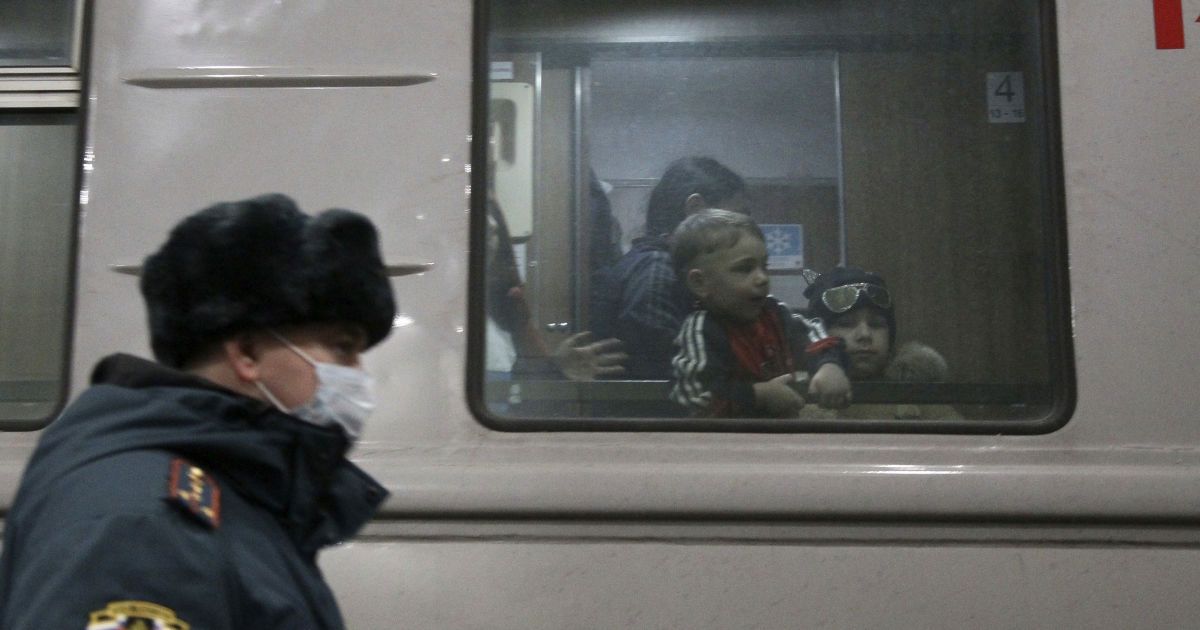The first months of Russia's
invasion
of Ukraine last year sent oil and natural gas prices soaring, giving Moscow a windfall.
However, those days are over.
The war is now in its second year and Western sanctions are getting stronger, Russia's government revenues are shrinking and its economy is on a lower growth trajectory, likely in the long term.
This is stated in the material of The Wall Street Journal.
The country's largest export products – gas and oil – have lost their main customers.
State finances are strained.
Since November, the ruble exchange rate against the dollar has fallen by more than 20%.
The labor force has shrunk as young people go to the front or flee the country for fear of being drafted into the army.
Uncertainty also deters investment in business.
"Russia's economy is entering a long-term regression," predicts Oleksandra Prokopenko, a former Russian Central Bank official who left the country shortly after the invasion of Ukraine.
Russian billionaire Oleg Deripaska warned this month that Russia is running out of money.
"There will be no money next year, we need foreign investors."
Due to the loss of the European market and the withdrawal of Western investors, Moscow is becoming increasingly dependent on China.
"Despite Russia's short-term resilience, the long-term picture is bleak: Moscow will be much more closed and overly dependent on China," said Maria Shagina, a senior fellow at the International Institute for Strategic Studies in London.
Now Moscow says it will cut oil production by 5% by June compared to previous levels.
It sells its oil at reduced prices compared to world prices.
As a result, in the first two months of this year, the Russian government's energy revenues fell by almost half compared to last year, and the budget deficit deepened.
The International Monetary Fund estimates that Russia's potential growth rate – the rate at which it could grow without fear of inflation – was about 3.5% before 2014, the year it seized Crimea.
Some economists say that figure has now fallen to 1% as labor productivity declines and the economy becomes technologically backward and more isolated.
"For an economy like Russia's, 1% is nothing, it's not even a level of support," said Prokopenko.
According to the WSJ, Russia had been trying to implement import substitution – replacing foreign goods with domestic goods – for years before the current sanctions, with limited success.
Much of the telecommunications equipment and modern software for drilling oil wells is imported.
According to the Gaidar Moscow Institute of Economic Policy, the country's industry is in the worst state of the workforce since records began in 1993.
According to the Central Bank, the post-invasion brain drain and the 300,000-strong military mobilization last fall have left about half of businesses facing labor shortages.
Locksmiths, welders, and machine operators are in demand.
During a recent visit to the aircraft factory, Russian President Vladimir Putin said labor shortages were hampering military production.
According to him, the government has prepared a list of priority professions for deferment from service.
With all the changes, the Russian economy is becoming more and more dependent on the state, the article says.
We will remind you that, according to
Forbes, Russia spent $114.4 billion on the war (about $10 billion per month), which is a third of all the revenues of the Russian budget for 2021
.
Most of the money was spent on providing for the military.
The head of Ukrainian military intelligence, Kyrylo
Budanov, believes that the Russian Federation has time until the end of spring to try to achieve at least some of its military goals in Ukraine.
Oleksiy Danilov, Secretary of the National Security Council, noted that
Russia is becoming more and more dependent on foreign aid due to the depletion of its accumulated stockpiles of weapons.
Read also:
Zelensky named the country without whose help Ukraine will lose the war with Russia
Prigozhin wants to show himself as a candidate for the presidency of Russia in the 2024 elections - ISW
The USA said whether it is possible to transfer F-16 to Ukraine
